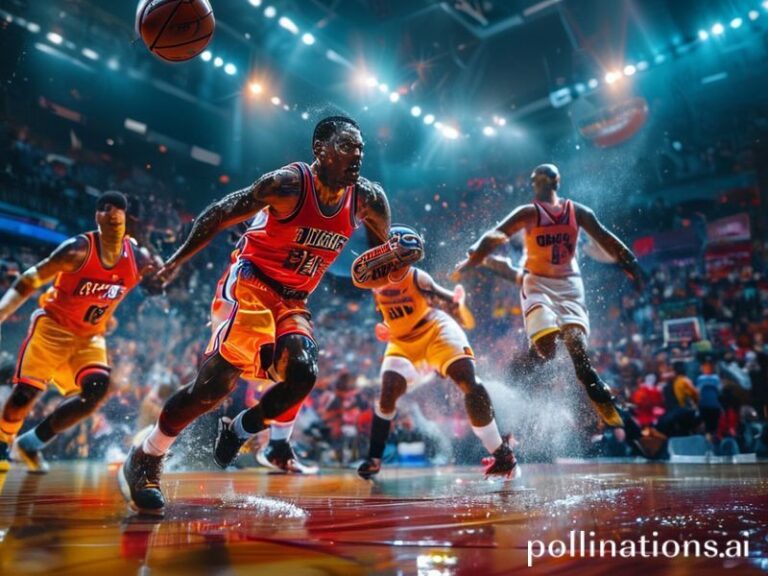Oil, Ronaldo, and the Beautiful Sellout: Inside the Global Theater of Al-Ittihad vs Al-Nassr
RIYADH—In a kingdom where the price of oil can swing elections on the other side of the planet, Monday night’s Al-Ittihad versus Al-Nassr match felt less like a domestic fixture and more like an off-Broadway morality play with a nine-figure budget. The Jeddah side, coached by the eternally aggrieved Nuno Espírito Santo, lined up against Riyadh’s traveling circus, whose marquee attraction answers to the name “Cristiano Ronaldo” and whose side-gig is reminding every other athlete on Earth that capitalism can, in fact, sign your autograph in advance.
Globally, the encounter was streamed in 189 countries, most of which have never watched Saudi football sober. Yet the feed was beamed from a stadium named after a dead king, into living rooms where viewers routinely confuse the Saudi Pro League with an extended LinkedIn advertisement for sovereign wealth. Somewhere between the 34th minute and Ronaldo’s obligatory shirtless flex, the match morphed into geopolitical Kabuki: a soft-power infomercial disguised as sport, bought to you by the same people who just bought the PGA Tour because, apparently, nothing says “reform” like purchasing the entire conversation.
On the pitch, Al-Ittihad’s Romarinho—Brazilian journeyman turned Jeddah cult hero—curled in the opener, prompting a roar that rattled the digital billboards pushing NEOM, the still-imaginary linear city that promises ski slopes in the desert and, presumably, a modest surcharge for oxygen. Al-Nassr equalized via a Talisca thunderbolt, after which Ronaldo executed his trademark “Siu!” celebration, a move that roughly translates to “I have trademarked joy itself.” The game ended 1-1, a scoreline that satisfied nobody except the accountants tracking international brand impressions.
Off the pitch, the implications were more entertaining. European sports pages, still hungover from the Super League debacle, treated the fixture like a cautionary tale with fireworks: “Look what happens when you let sovereign funds play Football Manager with real humans.” Meanwhile, FIFA—an organization that could misplace a moral compass in a locked safe—debated whether to award Saudi Arabia the 2034 World Cup, presumably because Qatar’s air-conditioned graveyards are so 2022.
For viewers in Lagos or Lahore, the match was a masterclass in aspirational capitalism: if you too can kick a ball with sufficient velocity, a Gulf state will fly you first-class into tax-free semi-retirement. In Buenos Aires, where inflation turns pesos into confetti, watching aging Europeans cash petro-checks felt like observing the final stage of empire: first they colonize your land, then your league, then your nostalgia. And in Washington, think-tankers scribbled notes linking goal differential to Vision 2030, the Saudi blueprint to diversify beyond crude—because nothing says “post-oil economy” quite like paying Ronaldo more per Instagram post than the annual GDP of, say, Belize.
Yet the most poignant subplot was the crowd itself: 57,000 fans performing the now-mandatory pilgrimage chant, half of them filming the moment on phones assembled by other Gulf laborers who can’t afford a ticket. The cameras, naturally, panned away from the segregated seating and the imported Bangladeshi ushers who’ve memorized “Goal!” in seven languages but still can’t pronounce the players’ names. If irony had a sound, it would be vuvuzelas muffled by non-disclosure agreements.
By the final whistle, the stadium lights dimmed to reveal a glowing advert for Aramco, the same company that just posted $161 billion in profits while the planet posted record temperatures. Somewhere in the commentary box, a former Premier League striker compared the atmosphere to “Anfield on a European night,” which is a polite way of saying “if Anfield were bankrolled by a fund that could buy Liverpool before the kettle boils.”
In the end, Al-Ittihad and Al-Nassr drew, Ronaldo preened, and the world kept spinning—slightly faster, perhaps, because every time the Saudi league schedules another glamour tie, another glacier files for early retirement. But worry not: there’s always next week, when Al-Hilal will unveil Neymar’s latest comeback and the global audience will pretend, once more, that sport is just sport, and not a very well-dressed hostage negotiator.







